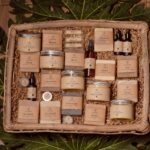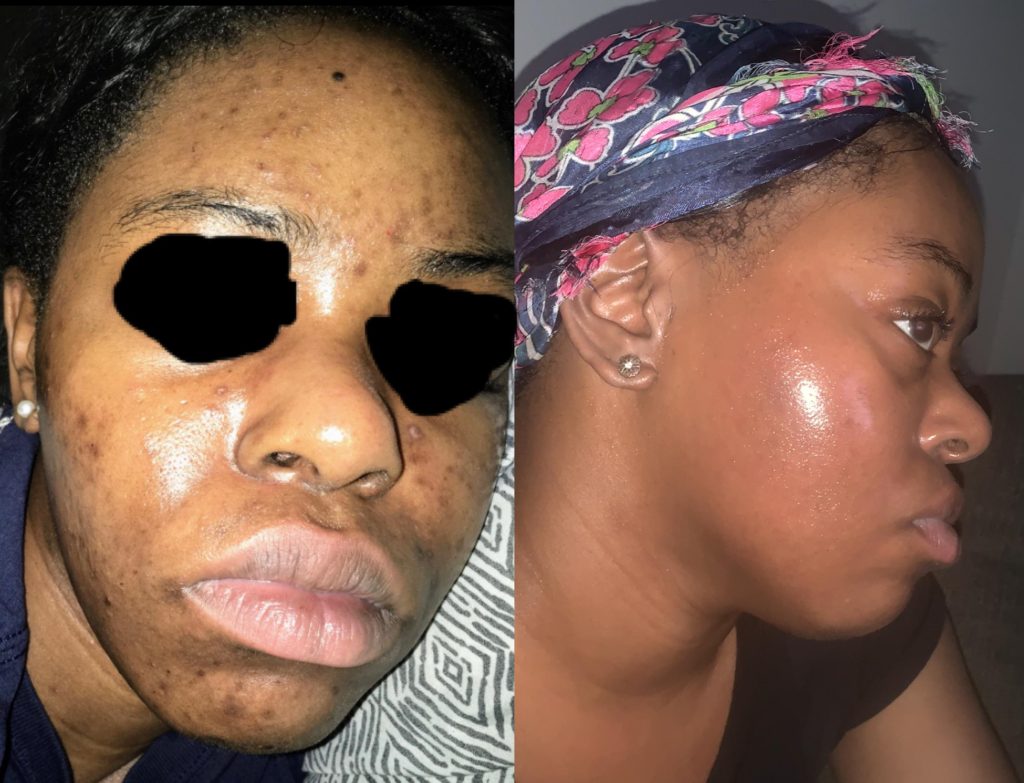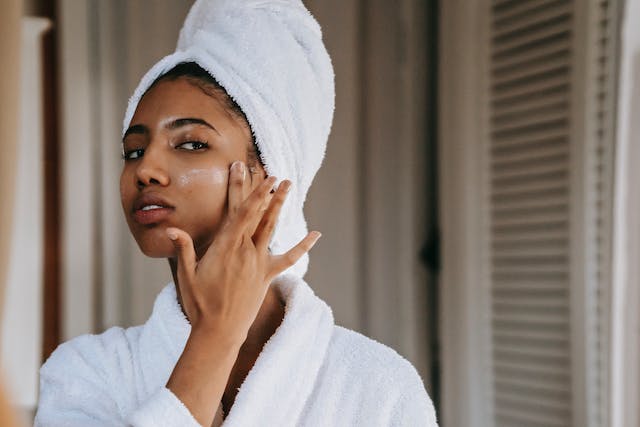
Celebrating 2 Years of Success and Empowering Innovation in Nigerian Natural Skincare
August 5, 2024
10 Tips For Your Anti-Ageing Skincare Routine
August 19, 2024Clear skin is a top skincare goal that can be frustrated by breakouts; whether you have mild or moderate acne. Adjusting your products, skincare routine and lifestyle can help break the breakout cycle and put you on the path to the skin you’ve always wanted. However, understanding how to get clear skin can be complicated. So, let’s explore how to get clear skin with these acne-fighting tips.
Understanding The Causes of Unclear Skin
Breakouts (such as pimples, whiteheads and blackheads) happen when oil and dead skin clog hair follicles, resulting in redness, swelling and clogged or enlarged pores. While acne breakouts tend to be most common in the teen years, they can affect you at any age. And it’s not just oily skin types that are susceptible. Dryness and irritation can also lead to breakouts.
Anything that clogs your pores can cause breakouts, including excess sebum (oil) and flaky or dead skin. Aside from your skin’s condition, external factors can also lead to breakouts. For example, hormonal fluctuations can stimulate excess sebum production. Stress can also cause the flare-up of acne due to increased cortisol and other hormone levels. Air pollution and sun exposure are also other possible culprits.
So, how can you overcome all of these to achieve clear skin?

General Skincare Tips For Clear Skin
- Fight Back With an Active Acne Ingredient
One way to minimise the appearance of acne and help prevent future breakouts is to use skincare products that contain acne-fighting ingredients. Not all ingredients are created equal, so some may work better for you depending on your skin type and the cause of your breakouts. Generally, some natural ingredients are proven to better fight acne such as Activated Charcoal, Tea Tree Oil, Rose Water, and Neem which have antioxidant, anti-fungal and antibacterial properties that help support healthy skin. A good first step to achieving clear skin is to try Kanda’s Acne & Skin Irritation Sample Pack which contains sample sizes of Kanda’s top acne-busting soaps including the Charcoal soap, Tea soap, Rose soap and Neem soap. These soaps can help improve the look and feel of acne by reducing sebum production and loosening debris in clogged pores.
- Cleanse Your Face Daily
Dirt, oil, dead skin and makeup can clog pores, leading to acne. The best way to remove that debris is to cleanse your skin twice a day — once in the morning and once before bed. Also, wash your face after activities that make you sweat (like a visit to the gym), but avoid overwashing unnecessarily, as this can lead to irritation. Use a small amount of your cleansing product and gently massage it into your skin. Rinse with lukewarm water and pat dry with a clean towel.
- Don’t Pop Pimples
You’ve probably heard this from your mom, dermatologist and esthetician, and now you’re hearing it again. It can be tempting to pop pimples — but resist the urge. Below the surface of your skin, that pimple is already swollen and under pressure. When you pop a pimple, you can force bacteria, oil and dead skin deeper into the follicle, which can cause inflamed bumps and discomfort.
- Moisturise Your Skin
Every skin type — dry, oily and combination — needs moisturiser every day. Moisturising ingredients strengthen your skin’s moisture barrier and prevent your skin from overcompensating for dryness by producing more sebum. If you have oily skin, opt for a pea-sized amount of moisturising products like Body Balms so your skin doesn’t pick up extra shine. Apply it after cleansing or as the last step in your skincare regimen before applying sunscreen.
- Limit Sun Exposure
Excessive sun exposure can dry out your skin, contribute to uneven skin tone and texture, lead to visible signs of premature ageing and increase your risk of skin cancer. And certain acne treatment ingredients make skin more sun-sensitive. So, in addition to wearing protective clothing and seeking shade during peak hours (10 a.m. to 4 p.m.), wear sunscreen that works well on acne-prone skin daily. Visit your dermatologist to recommend a good one for you.

- Stay Active
Stress can worsen acne, and exercising is a great way to relieve stress. Staying active is also key to a healthy skin and body routine. Commit to working out 15 minutes every day to start and build from there. Remember to wash your face afterwards to remove excess sweat and oil buildup. If you wear makeup, use a gentle makeup remover before your workout. And if you have body or back acne, wear breathable fabrics and shower after your workout.
- Stay Hydrated
All cells in the body need water. The skin cells are closest to the environment and, therefore, may be more at risk of losing their moisture to the elements. Drinking water throughout the day may help keep the skin cells healthy, helping you to achieve visibly clearer skin.
- Eat A Healthy Diet
Eating a diet rich in various plant foods and lean protein sources may help provide the nutrients that the skin needs to stay healthy. You may also want to cut out specific foods, such as dairy milk. A 2018 review found a positive relationship between milk and acne. Some believe that this link is due to the growth compounds and hormones that the milk contains. However, everyone may have different trigger foods that make their symptoms worse. You may want to speak to a nutritionist for more insight on your specific needs.
- Use A Toner
People with oily skin who are prone to acne may benefit from using a gentle toner to help unclog the pores. Products containing ingredients such as Hydrating Rose and Glycerin may help balance the skin’s pH, keep the pores clear, soften the skin and prevent the skin from dehydration.
- Wash Hair Frequently
People with oily skin may have an oily scalp. This excess oil can move to the face and encourage breakouts. Washing the hair every day or more regularly than usual may help control oil and reduce breakouts. Therefore you should endeavour to keep your hair away from your face, especially if it hasn’t been washed recently.
- Avoid Hot Water
Showering, bathing, or washing the hands and face with very hot water can dry out or damage the skin. If you notice that your skin is dry after bathing, you should try using lukewarm water instead.
Now, you have lots of tips and products at your disposal to prevent acne breakouts and help you get closer to achieving clear skin. You can try a variety of techniques for attaining clear skin at home. The best methods will invariably depend on your skin type. Moisturising, using gentle cleansers, and regularly washing may help. In some cases, you may benefit from medicated products. But overall, choosing ingredients that minimise breakouts, and being consistent with your skincare routine and lifestyle adjustments will help you achieve your skincare goals. The results may take time, but it’s definitely worth the wait!

